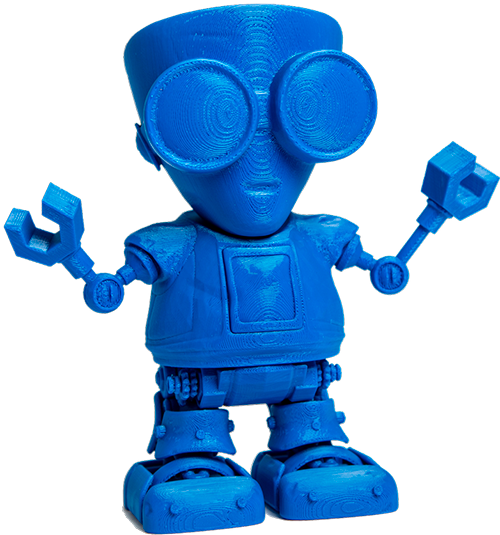🔧 3D Printing Solutions & Support
🔧 3D Printing Solutions & Support
GST 3D. This section is designed to help you solve the most common issues in your prints clearly, quickly, and technically.
📌 Common Problem Index
Poor bed adhesion
Filament tangles
Incorrect printing temperatures
Warping (part deformation)
Nozzle clogs
Stringing (unwanted threads)
Layer shifting
Under-extrusion
Part overheating
Cooling issues
.
📌 Common Problem Index
Poor bed adhesion
Filament tangles
Incorrect printing temperatures
Warping (part deformation)
Nozzle clogs
Stringing (unwanted threads)
Layer shifting
Under-extrusion
Part overheating
Cooling issues
.
1. 📌 Poor Bed Adhesion
Symptoms:
First layer doesn’t stick well
Filament detaches during printing
Common Causes:
Bed not properly leveled
Inadequate bed temperature
Dirty or worn bed surface
Incorrect Z-offset distance
Solutions:
Level bed using paper as a reference
Adjust bed temperature based on material
Clean the surface with isopropyl alcohol
Correct Z-offset in slicer or firmware
2. 🧵 Filament Tangles
Symptoms:
Filament stops mid-print
Clicking sounds from extruder
Common Causes:
Poorly wound spool
Excessive extruder tension
Low-quality filament
Solutions:
Check proper spool mounting
Adjust extruder tension as per specs
Use high-quality filament (like GST 3D)
3. 🌡 Incorrect Printing Temperatures
Symptoms:
Poor layer bonding
Filament over- or under-melting
Solutions:
Adjust temperature according to material:
|Material | Nozzle (°C) | Bed (°C) | Notes |
| PLA | 190–210 | 50–60 | Fan at 100% |
| PETG | 220–240 | 70–80 | Fan at 50% |
| ABS | 230–250 | 90–110 | Requires enclosure |
| TPU | 210–230 | 50–60 | Print slow (20–30 mm/s) |
4. 🧨 Warping (Part Deformation)
Symptoms:
Lifted corners
Curved base
Common Causes:
Thermal contraction
Poor bed adhesion
Air drafts
Solutions:
Use heated bed appropriately
Apply adhesives (hairspray, tape, glue stick)
Enclose print area or avoid drafts
Add brim or raft in slicer
5. 🔧 Nozzle Clogs
Symptoms:
No filament extrusion
Clicking from extruder
Common Causes:
Debris in the nozzle
Contaminated filament
Wrong temperature
Solutions:
Perform a cold pull
Replace nozzle if needed
Set correct nozzle temperature
6. 🪨 Stringing (Unwanted Threads)
Symptoms:
Fine threads between printed parts
Common Causes:
Nozzle temperature too high
Improper retraction settings
Solutions:
Lower nozzle temperature in 5°C steps
Adjust retraction distance and speed in slicer
7. 🏛 Layer Shifting
Symptoms:
Misaligned layers
Common Causes:
Loose belts
Dirty or dry axes
Too high print speed
Solutions:
Tighten belts
Clean and lubricate rails and bearings
Reduce print speed
8. 🔹 Under-Extrusion
Symptoms:
Gaps or missing material in layers
Thin or incomplete parts
Common Causes:
Partial nozzle clog
Inconsistent filament diameter
Incorrect flow rate settings
Solutions:
Clean or replace nozzle
Use quality filament with strict tolerances
Increase extrusion flow in slicer gradually
9. 🔥 Part Overheating
Symptoms:
Warped or melted upper layers
Loss of detail
Common Causes:
Too high nozzle temperature
Low print speed
Poor cooling
Solutions:
Lower nozzle temperature
Increase print speed
Improve cooling using fans or slicer settings
10. 🌬 Cooling Issues
Symptoms:
Poor bridge and overhang quality
Common Causes:
Faulty or misplaced cooling fans
Inadequate slicer fan settings
Solutions:
Verify fan placement and function
Optimize cooling speed in slicer
🔊 General Printing Tips
Always use dry filament
Clean the nozzle and extruder regularly
Use reliable slicers: Cura, PrusaSlicer, OrcaSlicer
Save verified profiles from GST 3D
Update firmware when needed


